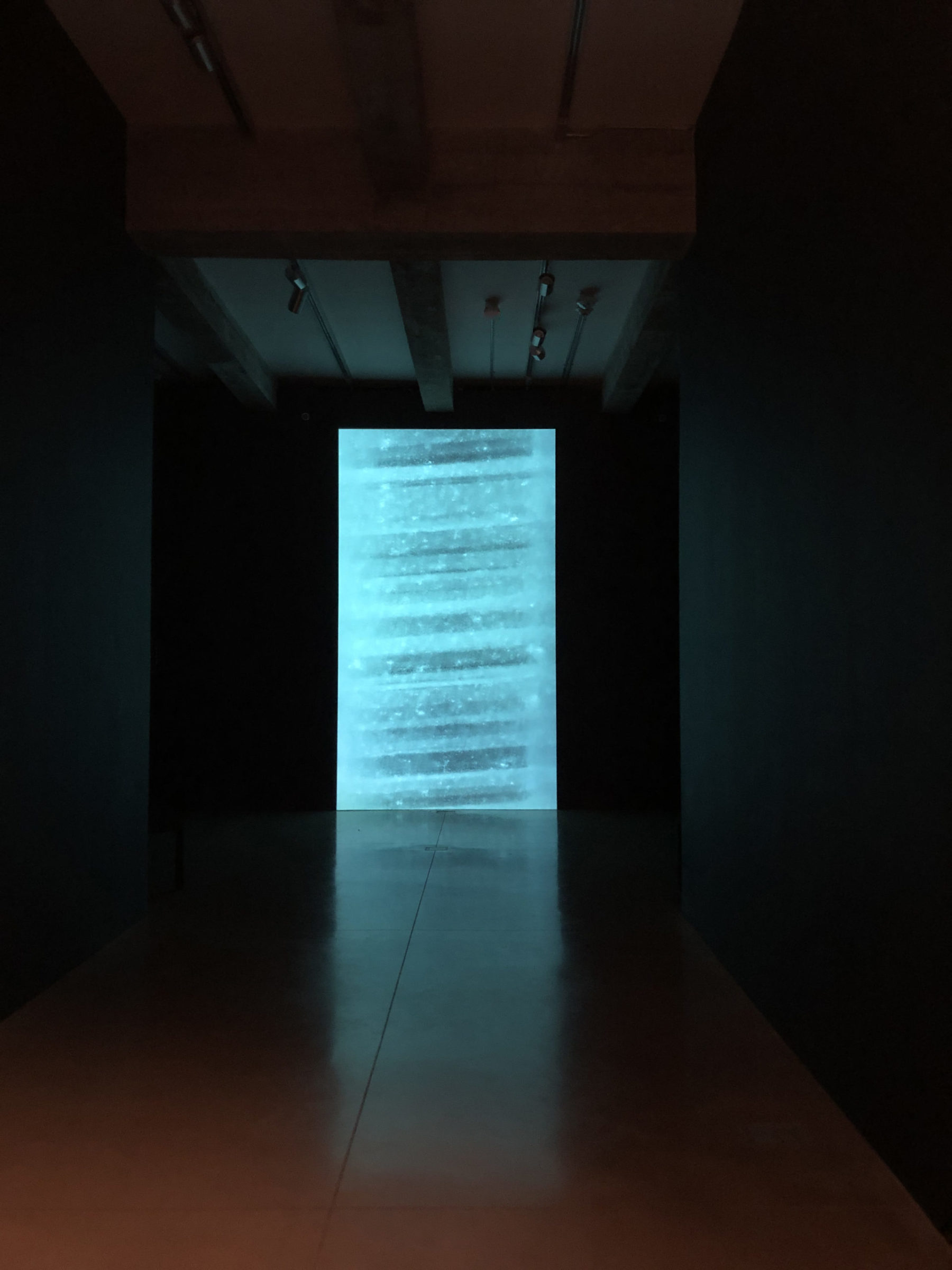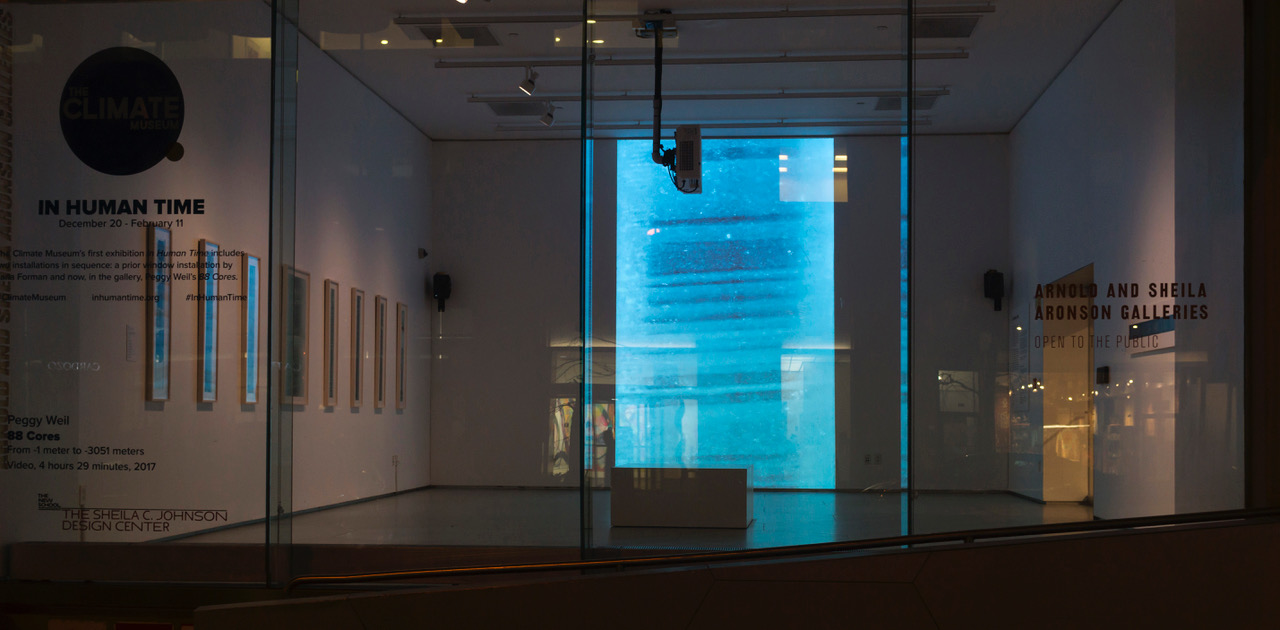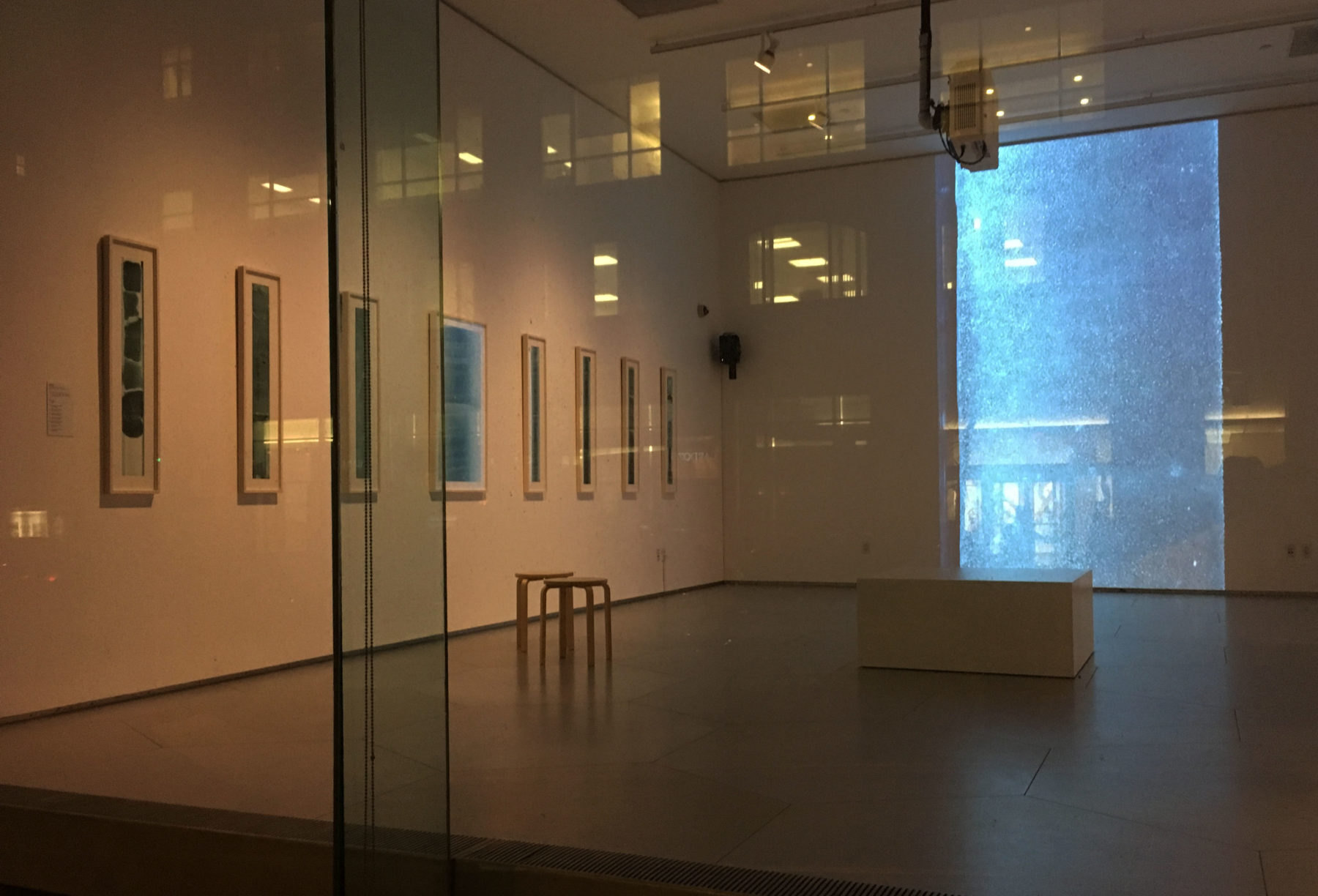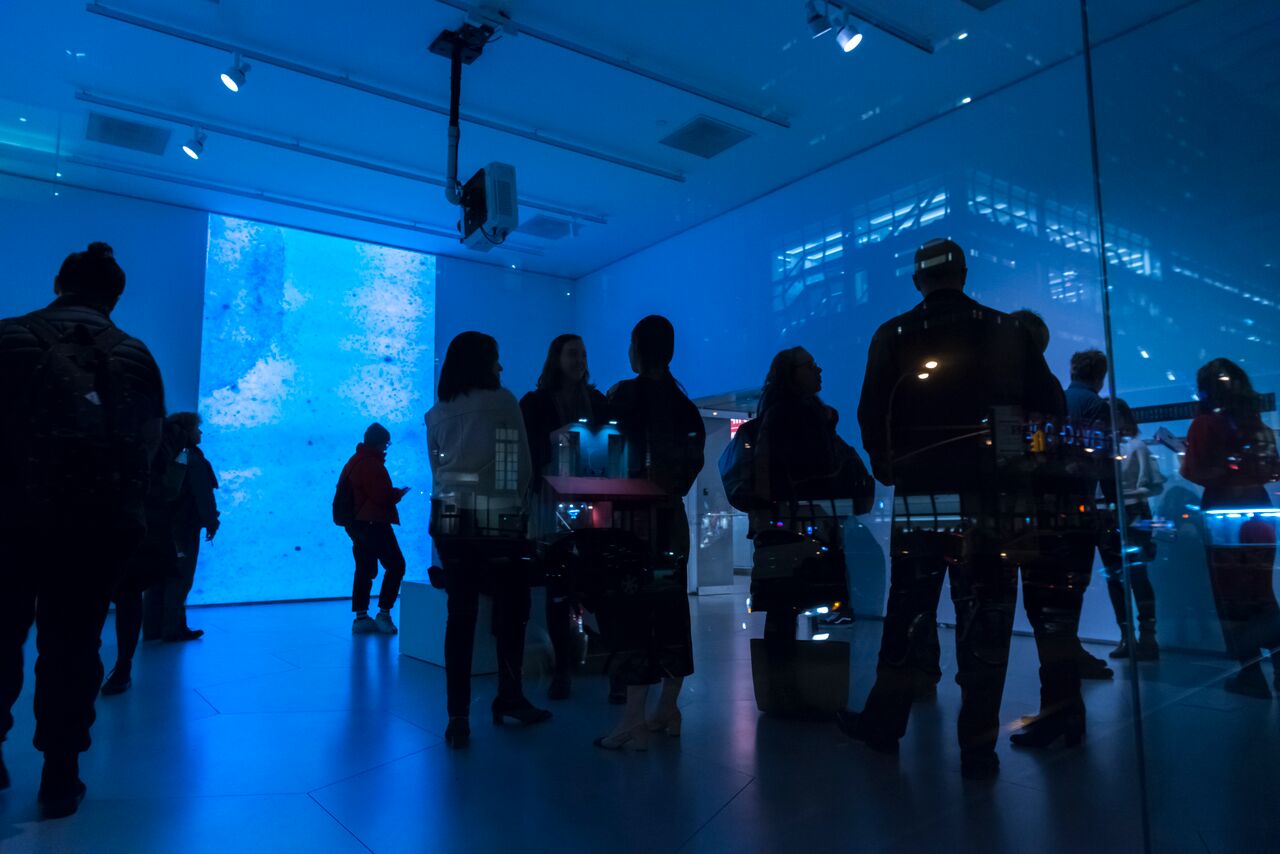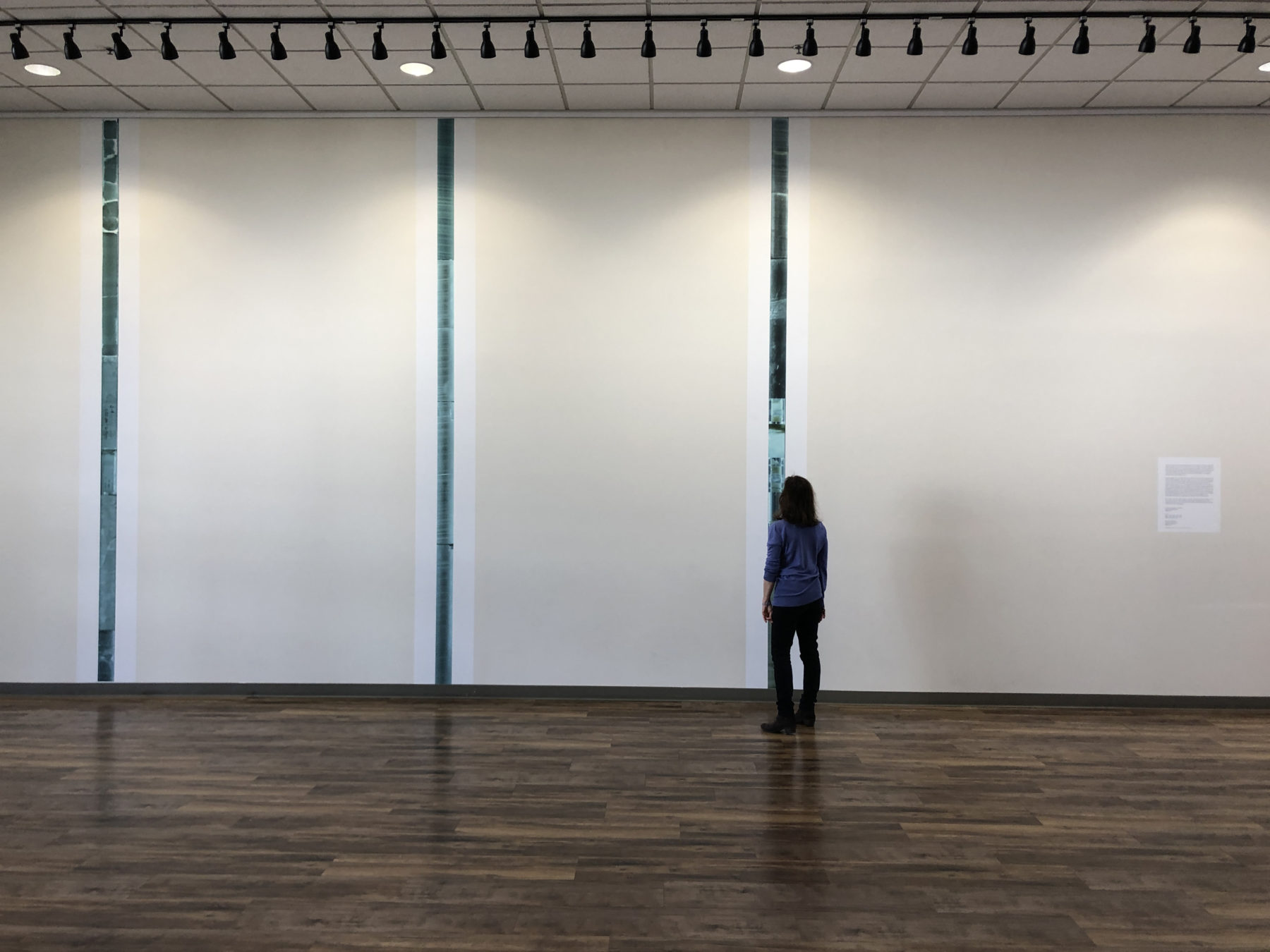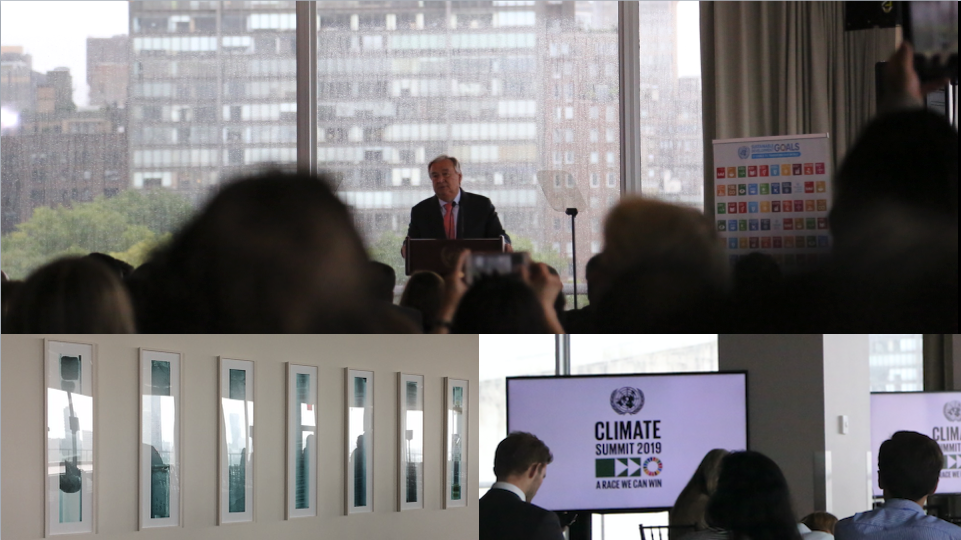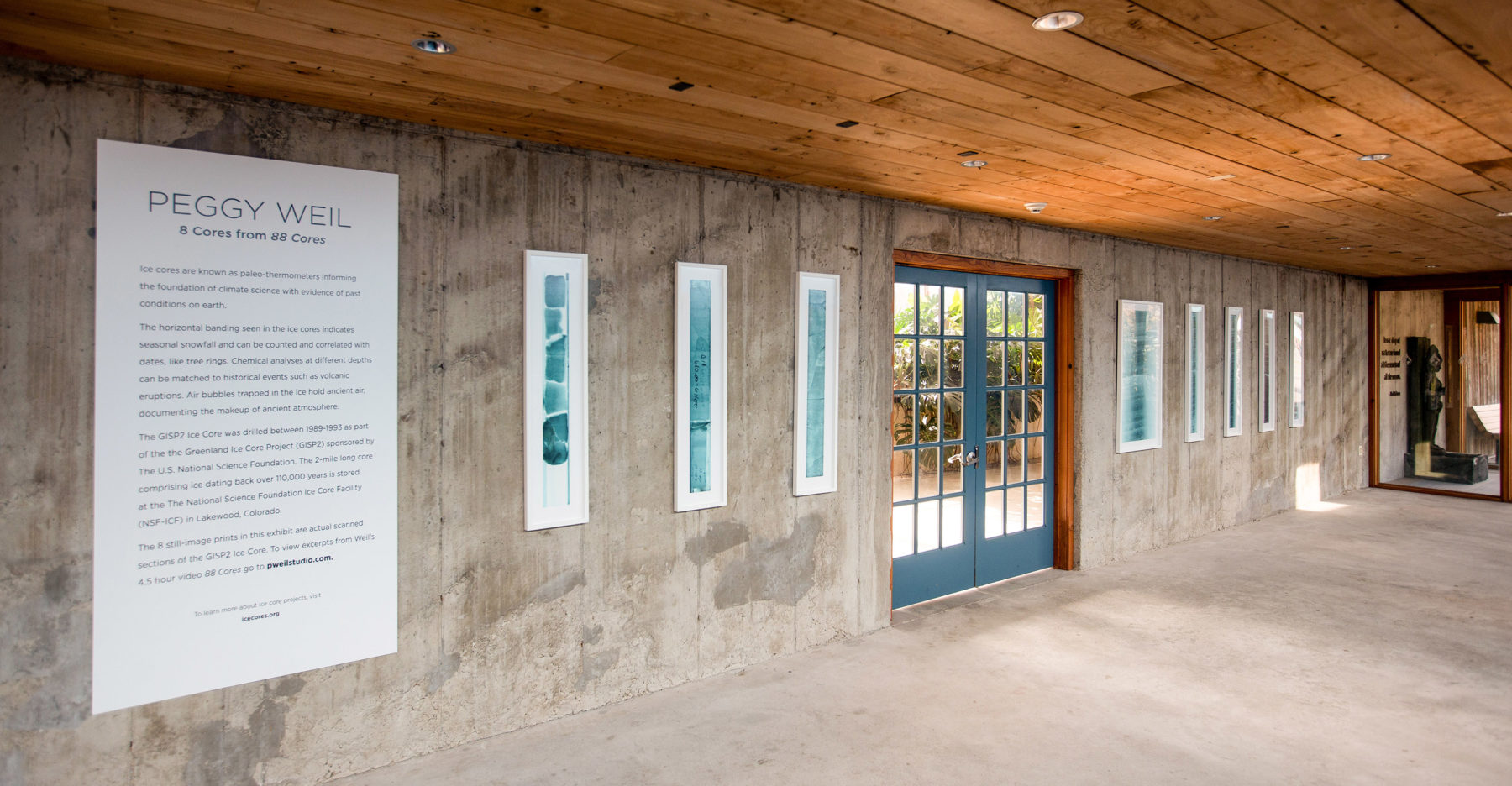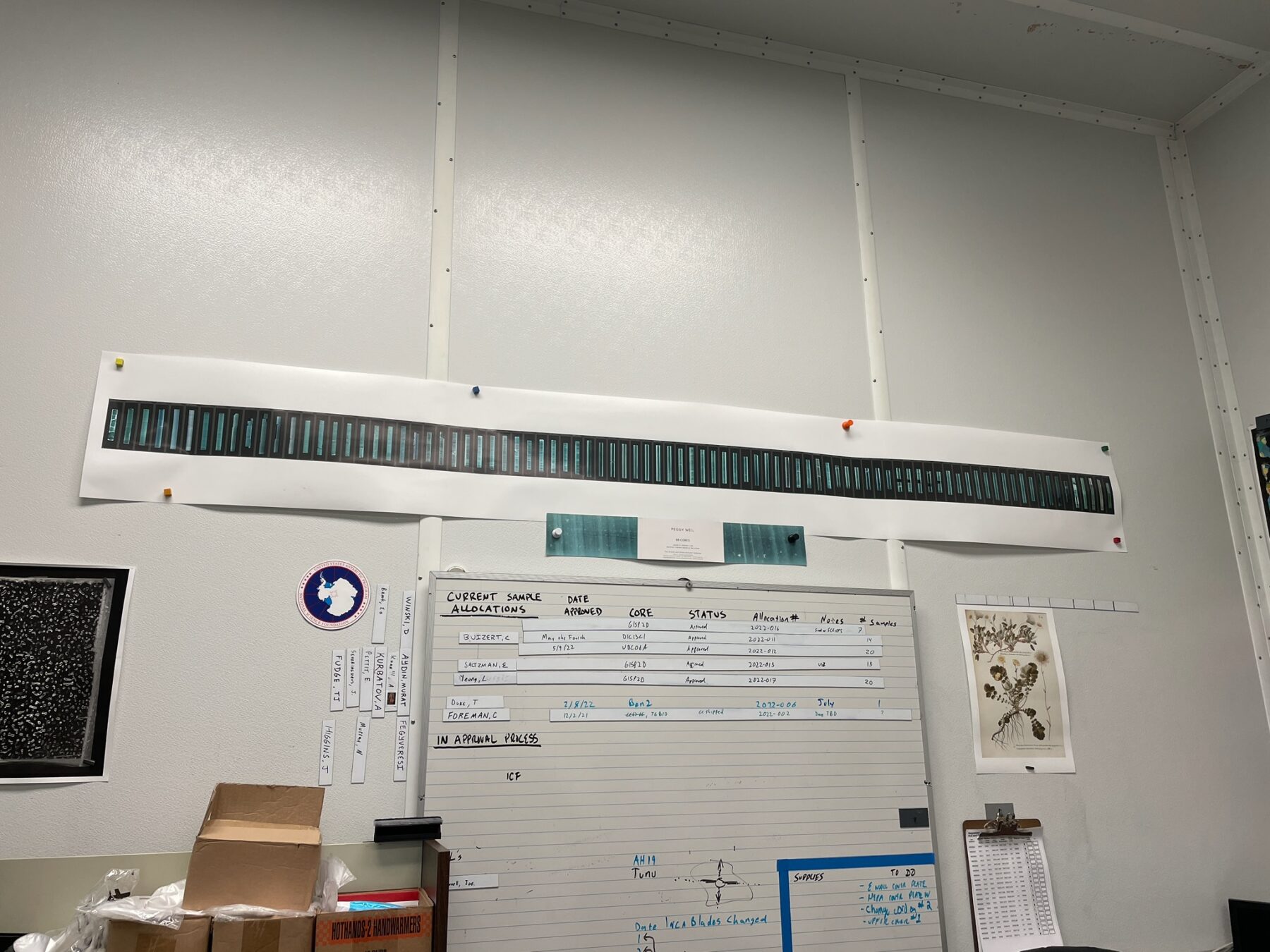88 Cores
88 CORES
A Monument to the Greenland Ice Sheet
From -1 Meter to -3051 Meters
Video 4h29m
Peggy Weil 2017
Original Score by Celia Hollander
88 Cores descends two miles through the Greenland Ice Sheet in one continuous pan dating back more than 110,000 years. It premiered at The Climate Museum’s inaugural exhibition, In Human Time, in NYC in 2018. The pace and scale of the work is a gesture towards deep time and the gravity of climate change.
Ice cores are known as paleo-thermometers informing the foundation of climate science with evidence of past conditions on earth. The horizontal banding seen in the cores indicates seasonal snowfall and can be counted and correlated with dates, like tree rings. Chemical analysis at different depths can be matched to historical events such as volcanic eruptions. Air bubbles trapped in the ice hold ancient air, documenting the makeup of ancient atmosphere. The GISP2D Ice Core was drilled between 1989-1993 as part of the the Greenland Ice Sheet Project, research sponsored by The National Science Foundation. The cores in 88 Cores are stored at the NSF Ice Core Facility in Lakewood, Colorado.
88 Cores is part of a series of Underscapes, portraits of the extended landscape in order to confront the scales of deep time and deep space.
Additional Information:
New Yorker: As The Artic Melts, An Artist Finds Beauty in Ancient Ice by Carolyn Kormann
Los Angeles Review of Books: It’s About Time by Peggy Weil
Exhibitions
2021 CHANGE
Lindblad National Geographic Endurance Expedition Ship
Curated by Zaria Forman
2021 – Permanent Polar Art Exhibition
2020 Against Time: Climate Calls from the Ice Archives
Samek Art Museum, Bucknell University
Jan 14 – March 22, 2020
2019 88 CORES
Colby Museum of Art, Waterville Maine
Curated by Diana Tuite
October 1 – December 8, 2019
2019 Bearing Witness 88 CORES: Putnam County Museum
in partnership with DePauw University Richard E. Peeler Art Center
Curated by Martha Donovan Opdahl
Greencastle Indiana
Oct 1- Dec 1, 2019
2019 8 Cores from 88 Cores
Omega Institute
Rhinebeck NY
Oct/Nov 2019
2019 88 CORES
The Philbrook Downtown, Tulsa, OK
Curated by Sienna Brown
February 1 – May 19 2019
2019 Documenting Change: Our Climate Past Present Future
CU University Art Museum Boulder CO
Curated by Erin Espelie and Hope Saska
Feb 7 – July 20, 2019
2019 Fire & Ice: The Shifting Narratives of Climate Change
UCI View Point Gallery
UC Irvine, California
Feb 2019
Fordham University, NYC
Curated by Carleen Sheehan
2018 United Nations for Secretary General António Guterres’s Address on Climate Action
2018 The Climate Museum: In Human Time
Sheila C. Johnson Design Center at Parsons, NYC
Curated by Christiane Paul
Jan 2017-Feb 2018
Press
NEW YORKER: As The Artic Melts, An Artist Finds Beauty in Ancient Ice
New York Times: Can Art Save The Planet?
The Boston Globe: New England’s Most Fascinating Shows for Fall
HYPERALLERGIC: The Climate Museum Captures The Gravity of a Global Crisis
Thomson-Reuters: Ice Core Sited in NYC as art tackles climate
artnet news NEED-TO-READ: America’s First Climate Change Museum has opened
The Atlantic: A Trip to a Museum to Convince Americans About Climate Change
PACIFIC STANDARD: Can Art Help People Feel the Devastation of Climate Change?
Glacier Hub: Photo Friday Core of Climate Science
NRDC OnEarth: A New Climate Museum Prepares Us for the Long Haul
THE TULSA VOICE: Time Will Tell
American Craft: Art for Earth’s Sake: The nascent Climate Museum takes on our Worldwide Crisis
Fire and Ice – 88 Cores on Fifth Ave
In Human Time The Climate Museum 2018
88 Cores descends two miles through the Greenland Ice Sheet in one continuous pan dating back more than 110,000 years in time. These cores were drilled between 1989-1993 as part of the the Greenland Ice Sheet Project (GISP2), sponsored by The National Science Foundation.
The variation in appearance over the 88 cores in this film is due to several factors: the coarser grained snow and firn (dense snow) closer to the surface are compressed into layers of ice as a function of depth. Visible banding, dust and debris are indicators of seasonal variation and regional conditions. Size and shape varies according to the condition of an individual core section; the ice may be fragmented or broken; or portions distributed to labs for analysis. The scanned images reflect over a decade of evolution in imaging technology between 2004 and 2017.
The variation and fragility of the excavated cores echo the vulnerability of polar ice as the Earth warms. The pace and scale of the piece is a gesture towards the immense scale and gravity of climate change.
Original Score and Notes by Celia Hollander
88 Cores follows ice cores underground and back in time. Perhaps time is more linear and asymmetrical on the scale of human perception but more cyclical and symmetrical on a massive scale, one that we can comprehend but can’t easily perceive.
88 Cores uses a linear approach, scrolling from top to bottom, as a type of temporal section cut. Reading this section cut suggests that there is a beginning and an end, but what came before and what will come after? Will the near future be like the distant past? And whose future, whose past? The one belonging to the ice, or the humans, or the Earth? Although ice is one of the most direct demonstrations of climate change, scrolling through this scale of time is a reminder of continuous and accumulating changes.
This piece of music is both cyclical and linear; it is propelled by small, evolving loops and downward sloping glissando drones, but is continuously slowing down at an even rate over the course of 4.5 hours. It is a system of small spinning parts that gradually decelerates and expands over time.
Celia Hollander is a Los Angeles based artist working in audio recordings, scores, sound installations and text. Her work critically engages ways that audio and the act of listening can question cultural infrastructures, cultivate social connection and enable an awareness of a continuously changing present.
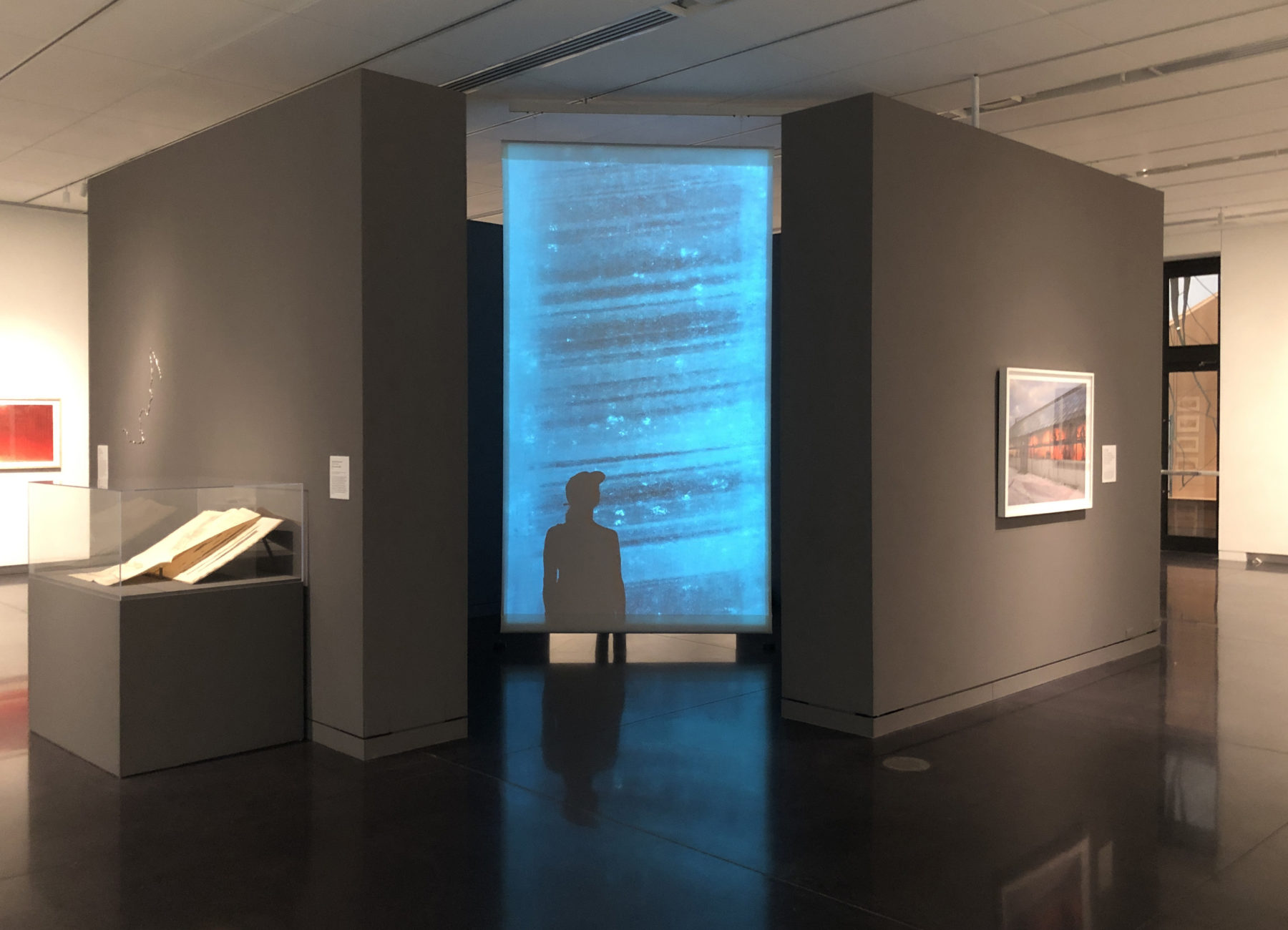
88 Cores
Documenting Change: Our Climate (Past Present Future)
CU University Art Museum Boulder 2019
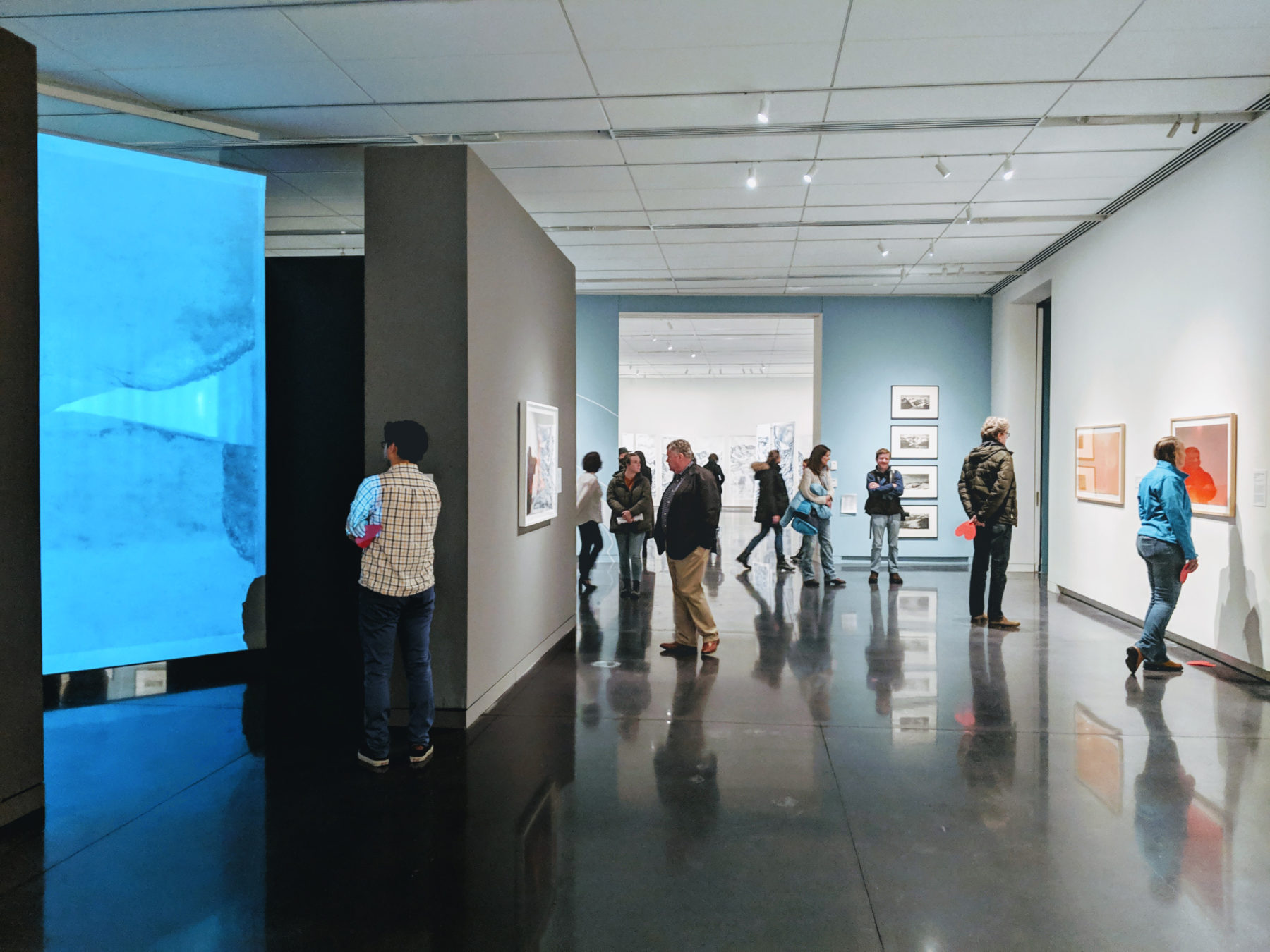
88 Cores
Documenting Change: Our Climate (Past Present Future)
CU University Art Museum Boulder 2019
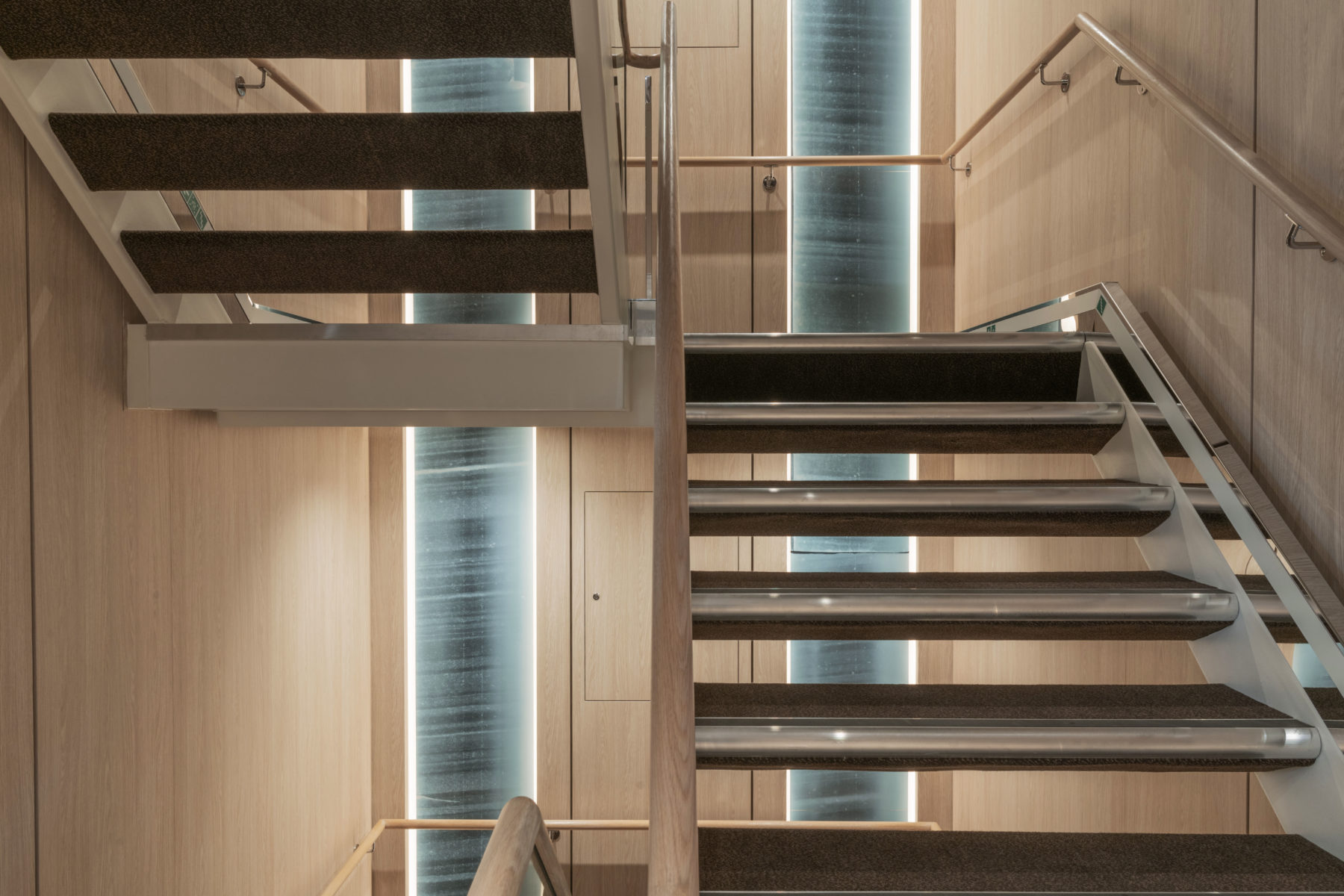
7 CORES From -2129m to -2137m
Paired Digital Prints 540mm X 14800m : 5 Stories
Lindblad NatGeo Endurance Ship: Aft Stairwell
Greenland Ice Sheet GISP2D Cores
Cores date back -30,000 to -31,000 BCE
88 CORES From -1 Meter to -3015 Meters
Video 4h29m (excerpt -22m)
88 CORES From -1 Meter to -3015 Meters
Video 4h29m (excerpt -2545 to -2670m)
